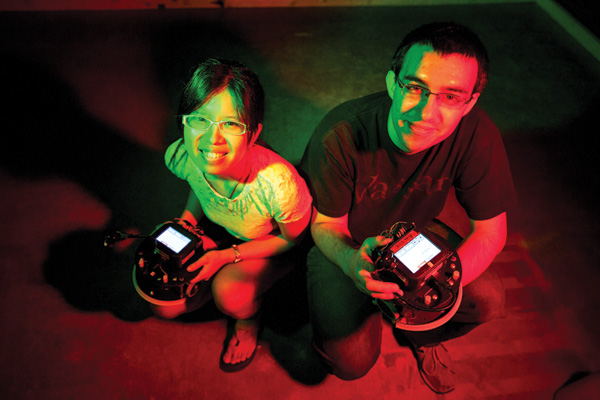Evolving Robotics
Each year, Vassar’s Undergraduate Research Summer Institute (URSI) provides an opportunity for students to work alongside faculty members on hands-on research. This summer, Lily Yachen Sun ’14, a biology major, and Ben Morse ’14, a cognitive science major, worked with biology professor John Long to study the conditions under which robots might evolve.

The students used four-wheeled robots equipped with optical sensors that tell them how to move; the ’bots have the ability to maneuver around each other as they react to red and green lights hanging above. Each has a different genetic code that is translated into instructions for building their bodies and nervous systems. Over the course of multiple evolutionary trials, the robots that are best at finding the green light are rewarded with more “offspring,” a new generation of robots whose genetic coding differs slightly from that of its “parents.”
The research is ongoing, but Sun says, “We’re beginning to see how and why organisms evolve, not just because of genetic coding but because of how they interact with the world.”
At Vassar, the study of robotics is not new. The college is home to the Interdisciplinary Robotics Research Laboratory, founded in 2003 by Professor Long; Tom Ellman and Luke Hunsberger of computer science; and Ken Livingston, who teaches both cognitive science and psychology.
“We have people with no technical experience programming robots by the end of the semester,” Livingston says of the Robotics Lab, which students may access as part of their coursework, URSI, or the lab’s annual Robotics Competition. Participants first experiment by changing a couple of lines of code to make existing robots do something different before transitioning into building robots from the ground up.
Long notes that these “out-of-the-box” experiences are the incubators of innovation, and he’s quick to point out that these kinds of explorations are happening not just in URSI and the Robotics Lab, but across the college. Such efforts “speak to our restlessness as scholars,” he says.
